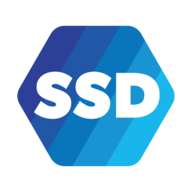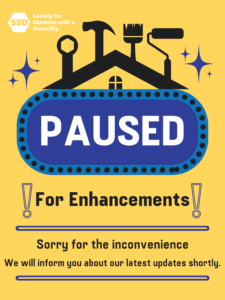We acknowledge and respect the lək̓ʷəŋən and W̱SÁNEĆ peoples on whose traditional unceded territory the Society of the Students with a Disability stands and the Songhees, Esquimalt and W̱SÁNEĆ peoples whose historical relationships with the land continue to this day. We seek to continually decolonize all forms of organizing structures and center Indigenous peoples when considering what accessibility looks like.
Funding Application Policy
Intention:
The intention of this program is to reduce the financial barriers specific to students with a disability(ies) at the University of Victoria. This funding policy is to provide reimbursement for or purchase of an assistive device, aid, or technology not otherwise provided or subsidized through other means, including UVic’s and wider-community resources, Student Aid BC, and personal health insurance. An application submitted under this Funding Request Policy is a once-per-semester option for individuals under extenuating circumstances who have exhausted all other options. This funding policy and procedure is not intended to and will not cover emergency funding requests, medication expenses, or devices not properly reputed by a registered medical professional; moreover, the intention of this funding application is to support UVic students with a disability(ies) with one-time purchases or reimbursements, rather than on-going monetary support.
The SSD recognizes that being a student with a disability potentially comes with additional costs to participating in post-secondary education and through this program aims to reduce or partially eliminate this barrier for eligible students.
Important Announcement: Temporary Pause on Funding Request Program
Dear Community,
We want to inform you that our Funding Request Program is currently on pause. Rest assured, this decision was made with careful consideration as we strive to enhance the effectiveness and accessibility of this vital initiative.
During this temporary pause, our team is diligently working behind the scenes to refine and improve the program. Our goal is to relaunch it in a manner that ensures greater efficiency and accessibility for all members of our community.
We understand the significance of the Funding Request Program and its impact on individuals and organizations within our community. Please bear with us as we work to make necessary enhancements to better serve you.
Thank you for your understanding and continued support. We look forward to reintroducing the Funding Request Program with improved features and processes.
Warm regards,
SSD team


